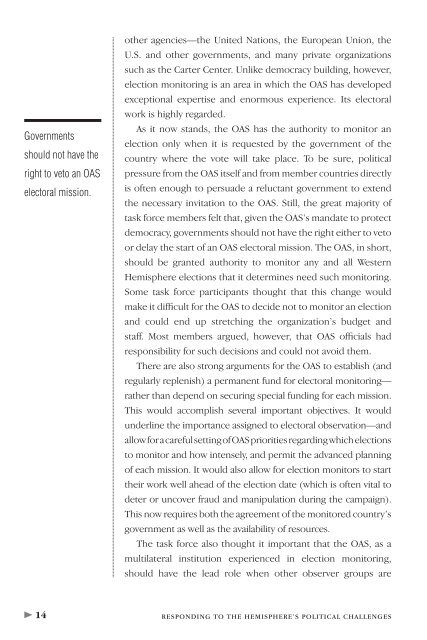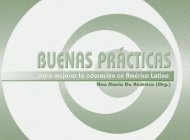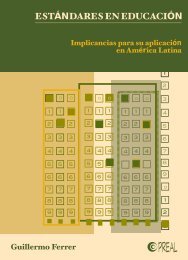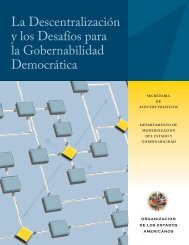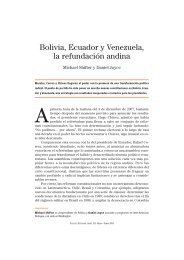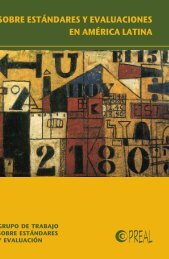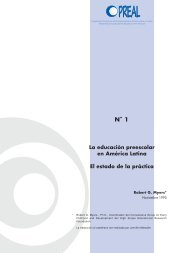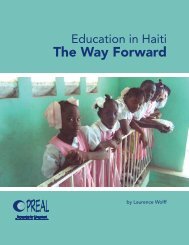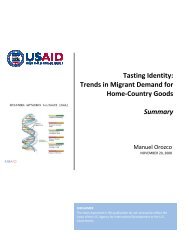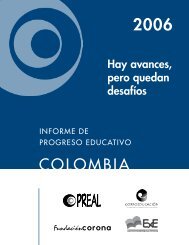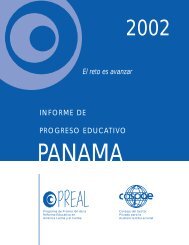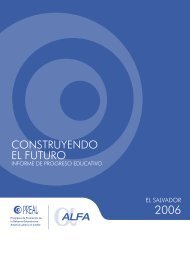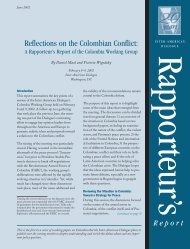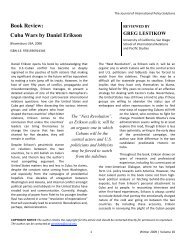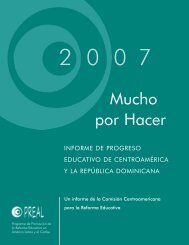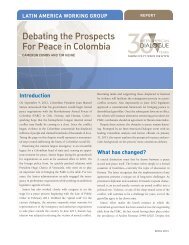View PDF Document - Inter-American Dialogue
View PDF Document - Inter-American Dialogue
View PDF Document - Inter-American Dialogue
Create successful ePaper yourself
Turn your PDF publications into a flip-book with our unique Google optimized e-Paper software.
Governments<br />
should not have the<br />
right to veto an OAS<br />
electoral mission.<br />
other agencies—the United Nations, the European Union, the<br />
U.S. and other governments, and many private organizations<br />
such as the Carter Center. Unlike democracy building, however,<br />
election monitoring is an area in which the OAS has developed<br />
exceptional expertise and enormous experience. Its electoral<br />
work is highly regarded.<br />
As it now stands, the OAS has the authority to monitor an<br />
election only when it is requested by the government of the<br />
country where the vote will take place. To be sure, political<br />
pressure from the OAS itself and from member countries directly<br />
is often enough to persuade a reluctant government to extend<br />
the necessary invitation to the OAS. Still, the great majority of<br />
task force members felt that, given the OAS’s mandate to protect<br />
democracy, governments should not have the right either to veto<br />
or delay the start of an OAS electoral mission. The OAS, in short,<br />
should be granted authority to monitor any and all Western<br />
Hemisphere elections that it determines need such monitoring.<br />
Some task force participants thought that this change would<br />
make it difficult for the OAS to decide not to monitor an election<br />
and could end up stretching the organization’s budget and<br />
staff. Most members argued, however, that OAS officials had<br />
responsibility for such decisions and could not avoid them.<br />
There are also strong arguments for the OAS to establish (and<br />
regularly replenish) a permanent fund for electoral monitoring—<br />
rather than depend on securing special funding for each mission.<br />
This would accomplish several important objectives. It would<br />
underline the importance assigned to electoral observation—and<br />
allow for a careful setting of OAS priorities regarding which elections<br />
to monitor and how intensely, and permit the advanced planning<br />
of each mission. It would also allow for election monitors to start<br />
their work well ahead of the election date (which is often vital to<br />
deter or uncover fraud and manipulation during the campaign).<br />
This now requires both the agreement of the monitored country’s<br />
government as well as the availability of resources.<br />
The task force also thought it important that the OAS, as a<br />
multilateral institution experienced in election monitoring,<br />
should have the lead role when other observer groups are<br />
14<br />
RESPONDING TO THE HEMISPHERE’S POLITICAL CHALLENGES


